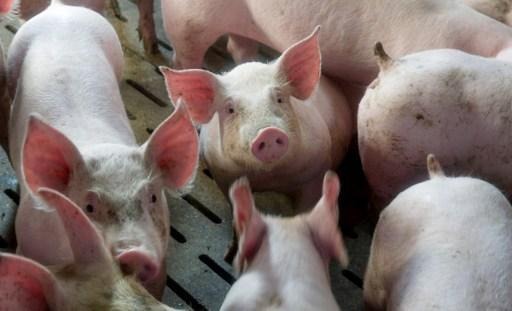According to a report by Greenpeace on Tuesday, Belgium is the European Union (EU) country which has recorded the greatest increase in “mega-farm” operations in the period 2004-2016.
The environmental protection group calculates that no fewer than 70% of pigs and 72% of chickens raised are from these vast operations, themselves the largest beneficiaries of Common Agricultural Policy (CAP) subsidies.
“Europe is in the process of losing its farms. Between 2005 and 2013, 3.7 million farms ceased to exist,” states Greenpeace, using Eurostat data. However, the size of operational farms follows the opposite trend. In 2013, 72% of “livestock units” raised in the 28 EU countries came from farms with a turnover in excess of €100,000.
“Mega-farms”, with an annual turnover of more than half a million euros, witnessed a “genuine boom”, especially in Belgium. In 2016, the country had 4,120 of them out of a total of 28,730 farms.
Greenpeace assesses that in the same year, 70% of pork meat came from these mega-farms, or 41% more than in 2004. As regards poultry, the increase reaches 45%, with 72% of chickens produced by intensive farming. In the case of milk, production was limited by quotas through to 2015, but all the same, the increase is significant, with a growth from 3% to 25% of both milk and milk products from mega-farms in 12 years.
Greenpeace argues, “The current European agricultural policy is encouraging these economies of scale. At the current time, the bias of the CAP is increasing every year towards the rearing sector, by between €28.5 billion and €32.6 billion - between 18% and 20% of the EU’s total annual budget.”
We might say that through this, around €600 million is ploughed into Belgian agriculture every year, said the environmental protection organisation. However, only a fraction of this money goes into small-scale and eco-friendly agriculture, with the largest share being earmarked for mega-farms, it added.
Last week, a study ordered by Greenpeace Belgium at the University of Louvain (Louvain’s French-speaking Catholic University) calling for the reduction in the livestock reared by Belgian stock breeders, had provoked an angry response from the Walloon Federation of Agriculture (the FWA). In particular, the FWA regretted Greenpeace not placing greater emphasis on the specific aspects of Walloon stock rearing, itself far more family-based than in Flanders.
The Brussels Times

